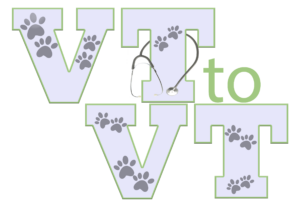A career as a veterinary technician offers more than just the traditional image of working in a small animal clinic. The field is surprisingly diverse, offering numerous career paths and opportunities for specialization. This post explores the various career avenues available to veterinary technicians, showcasing the breadth and depth of this rewarding profession.
The Traditional Path: General Practice
Many veterinary technicians begin their careers in general practice clinics, providing routine and preventative care to companion animals. This setting offers a broad range of experiences, allowing technicians to utilize their full skill set in areas such as:
- Preventative Care: Administering vaccines, performing parasite checks, and educating clients on pet wellness.
- Diagnostics: Performing laboratory tests, taking radiographs, and assisting with ultrasound examinations.
- Treatment: Administering medications, providing wound care, and assisting with minor surgical procedures.
- Client Communication: Educating clients on pet health, treatment plans, and home care.
General practice provides a solid foundation for new graduates and allows them to gain experience in various aspects of veterinary medicine.
Specialization: Focusing Your Expertise
For technicians seeking more specialized roles, numerous opportunities exist to focus on a particular area of veterinary medicine. Some popular specializations include:
- Emergency and Critical Care: Working in emergency clinics or intensive care units, providing advanced care to critically ill or injured animals. This requires quick thinking, excellent assessment skills, and the ability to handle high-stress situations.
- Anesthesia and Analgesia: Specializing in anesthesia monitoring, pain management, and perioperative care. This requires in-depth knowledge of anesthetic agents, monitoring equipment, and pain management protocols.
- Dentistry: Focusing on dental prophylaxis, dental radiography, and assisting with dental surgeries. This requires specialized training in dental anatomy, dental instruments, and dental hygiene techniques.
- Internal Medicine: Assisting with the diagnosis and treatment of internal diseases, such as endocrine disorders, gastrointestinal issues, and respiratory problems. This requires a strong understanding of physiology, pathophysiology, and diagnostic procedures.
- Surgery: Assisting veterinarians during surgical procedures, preparing surgical instruments, and providing pre- and post-operative care. This requires knowledge of surgical protocols, aseptic techniques, and surgical instrumentation.
- Clinical Pathology: Working in veterinary diagnostic laboratories, performing advanced laboratory tests, and analyzing samples. This requires meticulous attention to detail and a strong understanding of laboratory procedures and quality control.
- Zoological Medicine: Working with exotic animals, wildlife, or zoo animals. This requires specialized knowledge of the unique needs and husbandry requirements of different species.
Beyond the Clinic: Alternative Career Paths
Veterinary technology skills are transferable to various non-clinical settings, offering diverse career opportunities beyond traditional practice:
- Veterinary Technology Education: Teaching in veterinary technology programs, training future generations of technicians.
- Pharmaceutical and Animal Health Companies: Working in sales, research, or technical support roles for companies that develop and manufacture veterinary products.
- Animal Shelters and Rescue Organizations: Providing medical care to shelter animals and promoting animal welfare.
- Research Facilities: Assisting with animal research studies in universities, government agencies, or private companies.
- Government Agencies: Working for agencies such as the USDA or FDA, involved in animal health regulations and public health initiatives.
- Humane Organizations: Working for organizations dedicated to animal welfare, advocacy, and education.
Question 1: How do I become a veterinary technician specialist?
Answer: Veterinary Technician Specialties are recognized by the National Association of Veterinary Technicians in America (NAVTA). Each specialty has specific requirements, which usually include:
- Credentialing as a Registered/Licensed/Certified Veterinary Technician: You must hold a valid credential in your state or province.
- Years of Experience in the Specialty Area: Typically, several years of practical experience in the chosen specialty are required.
- Continuing Education: Completion of specific continuing education courses or programs related to the specialty.
- Examination: Passing a rigorous examination that tests knowledge and skills in the specialty area.
You can find detailed information about the different veterinary technician specialties and their requirements on the NAVTA website: https://navta.net/veterinary-technician-specialties/
The Importance of Networking and Mentorship:
Networking with other veterinary professionals and seeking mentorship can be invaluable in exploring different career paths and specializations. Attending veterinary conferences, joining professional organizations, and connecting with experienced technicians can provide valuable insights and guidance.
Question 2: Are there specific certifications for working with exotic animals?
Answer: While there isn’t a specific NAVTA-recognized specialty exclusively for exotic animals, technicians working in zoological medicine often pursue certifications or advanced training related to specific groups of animals, such as reptiles, birds, or zoo animals. Organizations like the Association of Reptilian and Amphibian Veterinarians (ARAV) and the Association of Avian Veterinarians (AAV) offer resources and continuing education for those interested in working with these species.
The Evolving Landscape of Veterinary Technology:
The field of veterinary technology is constantly evolving, with new technologies, treatments, and career opportunities emerging. Staying up-to-date on the latest advancements and exploring different career paths can lead to a more fulfilling and dynamic career.
Question 3: What are some emerging trends in veterinary technology that might create new career opportunities?
Answer: Several trends are shaping the future of veterinary technology:
- Telemedicine: The use of technology to provide remote veterinary care is expanding, creating opportunities for technicians to assist with virtual consultations and provide remote monitoring.
- Advanced Imaging: Advancements in imaging technologies, such as MRI and CT scans, are creating demand for technicians with specialized training in these areas.
- Regenerative Medicine: The use of stem cell therapy and other regenerative medicine techniques is growing, creating opportunities for technicians to assist with these innovative treatments.
- Veterinary Informatics: The use of data analysis and technology to improve veterinary care is increasing, creating opportunities for technicians with skills in data management and analysis.
By exploring the diverse career paths and specializations available, veterinary technicians can create a fulfilling and impactful career that aligns with their interests and passions. The field offers a wide range of opportunities to make a real difference in the lives of animals and their owners.
